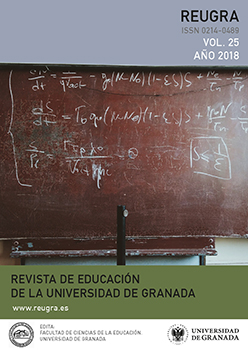The Origin of the Reversal Error and the Underlying Neural Bases
Main Article Content
Abstract
An important research line in mathematical teaching and learning and, more specifically, in the solving of word problems in an algebraic way, is focused on establishing the cognitive processes involved from the identification of a mathematical relationship of problem expressed verbally to the subsequent representation of algebraic expressions. A case in which a considerable number of students recognize the conceptual scheme, but are not able to translate this to a correct mathematical expression would be the error known as reversal error. This error takes place in word problems that involve additive and multiplicative comparison. The error is often made on tasks similar to the following: “Write an equation based on the following statement: ‘There are six times as many students as professors at this university.’ Use S for the number of students and P for the number of professors.” A common incorrect answer is P = 6 · S, caused by reversing the order of the letters from the correct answer S = 6 · P. The current literature has only been able to establish relationships between mathematical variables. However, concerning the reversal error these studies have not taken students’ brain development into consideration when analysing students’ learning or have not explored the causal relation between the features of problems and their difficulty.
The main objective of this research is to reveal the underlying neural bases linked to individual differences between students when solving arithmetic-algebraic word problems and, in particular, when reversal errors are made.



